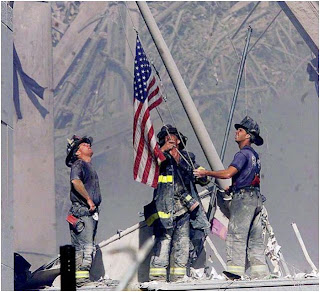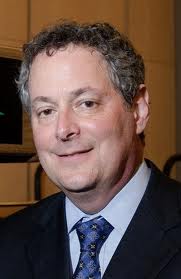All shall pass before You like members of the flock. Like a shepherd pasturing his flock, making sheep pass under his staff, so shall You cause to pass, count, calculate, and consider the soul of all the living; and You shall apportion the fixed needs of all Your creatures and inscribe their verdict. On Rosh Hashanah will be inscribed and on Yom Kippur will be sealed how many will pass from the earth and how many will be created; who will live and who will die; who will die at his predestined time and who before his time; who by water and who by fire…
“Who shall live and who shall die? Who before his time?” Those words were echoing in my head yesterday morning as I read the news alert that West Bloomfield Police Officer Patrick O’Rourke had been shot dead by Ricky Coley, a man who barricaded himself in his West Bloomfield home (and later committed suicide). Officer O’Rourke was only 39-years-old and left behind his wife and four young children. His colleagues in the West Bloomfield Police called him “the most-liked person in this building.”
I’m aware that police officers get shot and killed in the line of duty and they go into the force knowing that is a reality. But it’s never happened here in West Bloomfield. I grew up here. I work here. This occurred less than four miles from my home. Tragic just doesn’t seem like a strong enough word for this.
To honor the memory of Officer O’Rourke and to remember those who perished on 9/11 in New York City, Washington D.C., and on United Airlines Flight 93 in Shanksville, Pennsylvania I offer this beautiful and moving U’netane Tokef inspired poem written by my late teacher Rabbi Moshe Tutnauer, of blessed memory:
I used to think that the U’netaneh Tokef was written
either by someone old, pondering imminent death,
or by someone who had endured plagues and earthquakes.
And then I watched a plane carrying human beings
Being crashed into a building full of other human beings
And as I saw the ball of fire, and the people jumping, and the smoke,
I began to ponder those awesome words:
Who will live and who will die
Who in due time and who all too suddenly
Who by fire, and who by water
Who by the sword, and who by wild beasts (humans!)
Who by starvation, and who by dehydration
Who by suffocation, and by hurtling objects
I knew that even the angels were confounded
No still small voice could be heard
Only the deafening sound
of fuel exploding,
of buildings imploding,
of humans screaming
So scholars may argue whether U’netaneh Tokef
Was written in the 5th or 10th century
But I know that it was really written last week.
Now the original author had faith –
Perhaps the decree’s bitterness
May be sweetened
By turning into oneself and examining one’s deeds
By turning to God and seeking Divine inspiration
By turning to others and acting justly toward them.
May each of us
Find the way
To cleanse our souls of bitterness
To raise our spirits to Godliness
To open our hands to righteousness
Touch the ones you love
Hear the Shofar’s voice
Taste the apples and honey
And try to make this a sweeter year.
May the memory of Officer Peter O’Rourke be a blessing to his family and may we continue to pray for the souls of the 2,977 victims of the 9/11 attack.


